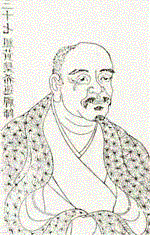A Quote by Aristotle
The virtues [moral excellence] therefore are engendered in us neither by nature nor yet in violation of nature; nature gives us the capacity to receive them, and this capacity is brought to maturity by habit.
Related Quotes
Nature consists of facts and of regularities, and is in itself neither moral nor immoral. It is we who impose our standards upon nature, and who in this way introduce morals into the natural world, in spite the fact that we are part of this world. We are products of nature, but nature has made us together with our power of altering the world, of foreseeing and of planning for the future, and of making far-reaching decisions for which we are morally responsible. Yet, responsibility, decisions, enter the world of nature only with us
We can be content with simplicity because the deepest most satisfying delights God gives us through creation are free gifts from nature and from loving relationships with people. After your basic needs are met, accumulated money begins to diminish your capacity for these pleasures rather than increase them. Buying things contributes absolutely nothing to the heart's capacity for joy.
Thyself and thy belongings
Are not thine own so proper, as to waste
Thyself upon thy virtues, they on thee.
Heaven doth with us as we with torches do,
Not light them for themselves; for if our virtues
Did not go forth of us 't were all alike
As if we had them not. Spirits are not finely touch'd
But to fine issues; nor Nature never lends
The smallest scruple of her excellence,
But, like a thrifty goddess, she determines
Herself the glory of a creditor -
Both thanks and use.
Nature is purposeless. Nature simply is. We may find nature beautiful or terrible, but those feelings are human constructions. Such utter and complete mindlessness is hard for us to accept. We feel such a strong connection to nature. But the relationship between nature and us is one-sided. There is no reciprocity. There is no mind on the other side of the wall.
You see this incredible capacity for replication in nature, survival, development, all of these things that are around us all the time in nature that just happen. By comparison, human life is really, really complicated. We're gifted animals, but we are so complicated. Nothing is easy for us, except maybe eating too much.
The nature of the Absolute is neither perceptible nor imperceptible; and with phenomena it is just the same. But to one who has discovered his real nature, how can there be anywhere or anything separate from it?... ...Therefore it is said: 'The perception of a phenomenon IS the perception of the Universal Nature, since phenomena and Mind are one and the same.'
In my judgment, the Deists were all successfully answered. The god of nature is certainly as bad as the God of the Old Testament. It is only when we discard the idea of a deity, the idea of cruelty or goodness in nature, that we are able ever to bear with patience the ills of life. I feel that I am neither a favorite nor a victim. Nature neither loves nor hates me.
We know then the existence and nature of the finite, because we also are finite and have extension. We know the existence of the infinite and are ignorant of its nature, because it has extension like us, but not limits like us. But we know neither the existence nor the nature of God, because he has neither extension nor limits.






































